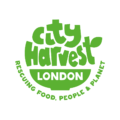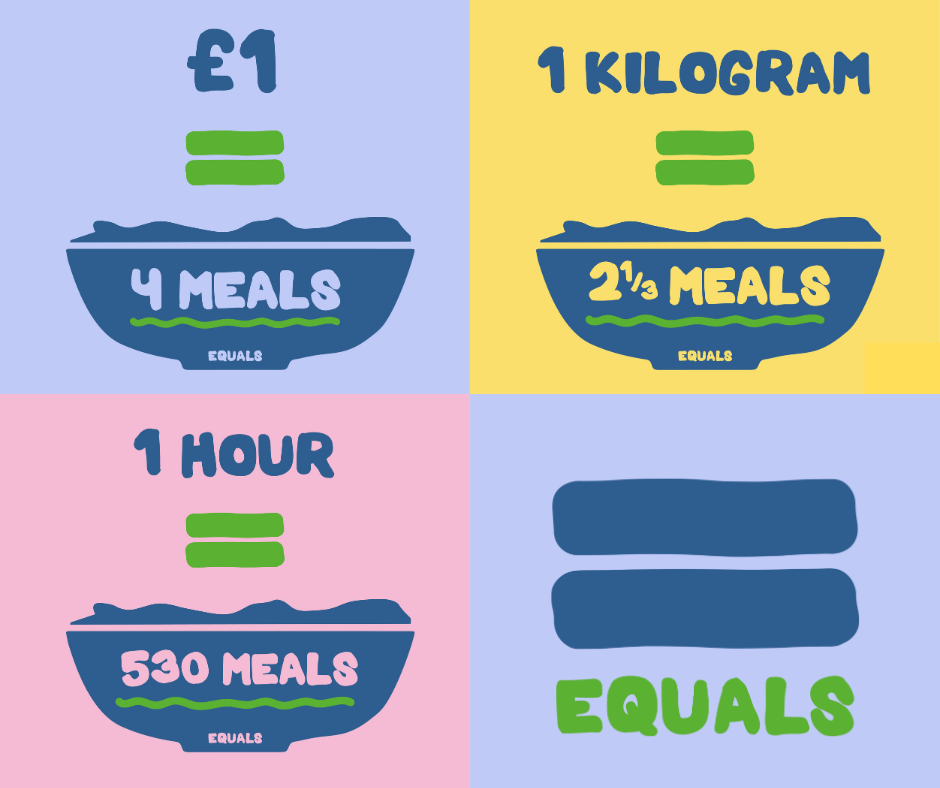Making the most of your carrots this Stop Food Waste Day!
It’s #StopFoodWasteDay so we’re sharing some zero-waste carrot recipes to prevent food waste at home! Use the following links to jump straight to the recipe you want.
Carrot & Sweet Potato Soup | Carrot Cake | Carrot Peel Crisps | Carrot Peel Pesto
In rescuing surplus food, City Harvest prevents GHG emissions (notably methane) from food waste ending in landfill by diverting nutritious produce to London charities feeding their communities.
City Harvest’s Harvest for Hunger campaign collects quality, fresh surplus from farms and food producers across the UK, delivering it, free of charge, to 350+ charities feeding people unable to afford healthy food. The Harvest for Hunger initiative enables City Harvest to access food earlier on in the supply chain to be transformed into healthy meals for those who need it most.
Farmers, in turn, can find a sustainable solution in City Harvest, avoiding wasted resources, effort, and produce.
Carrots from City Harvest farm partner, Strawsons Ltd
City Harvest has recently welcomed lots of carrots through its depot doors, a root vegetable, grown in the UK, bringing sweetness and nutritional value to savoury dishes, and moistness to the beloved carrot cake. An all round top class vegetable as vibrant as they come.
But, what do you do with your carrot peel? 🥕
Here are some simple ways that you can use up WHOLE carrots, without throwing anything in the bin. Try these zero-waste recipes at home and tell us what you think!
Carrot & Sweet Potato Soup
Recipe by Georgina Edwards, City Harvest Volunteer Warehouse Coordinator.
Ingredients:
- 300g carrots
- 500g sweet potato
- 2 onions
- 2-4 garlic cloves
- 2″ fresh ginger
- 1 tbsp olive oil, or other oil, for frying
- Salt
- Pepper
- 850ml stock (vegetable stock or boiling water is also fine)
Method:
- Chop carrots (with skin on) into small chunks.
- Peel (skin optional) and chop sweet potatoes and slice into small chunks.
- Dice onions, chop garlic and grate ginger, ready to fry.
- In a medium-large pan, fry onions, garlic, ginger, salt, pepper (and any other desired seasoning) in about a tbsp olive oil and cook on a medium heat until the onion is translucent and aromatics are fragrant.
- Add the diced vegetable to the softened onion, garlic, and ginger mixture and incorporate thoroughly.
- Add the boiling water/stock to the mixture, making sure it is just covered by the liquid.
- Bring to the boil and simmer for 20-30 mins until the vegetables are soft enough (you can easily pierce with a fork).
- Take off the heat and blend carefully.
- Optional- add chilli flakes (or fresh, chopped chilli) and a dash of double cream (or coconut cream) to taste.
Carrot Cake
Source: BBC Good Food (serves 10-12)
Ingredients:
- 230ml vegetable oil, plus extra for the tin
- 100g natural yogurt
- 4 large eggs
- 1½ tsp vanilla extract
- ½ orange, zested
- 265g self-raising flour
- 335g light muscovado sugar
- 2½ tsp ground cinnamon
- ¼ fresh nutmeg, finely grated
- 265g carrots (about 3), grated (skin on)
- 100g sultanas or raisins
- 100g walnuts or pecans, roughly chopped (optional)
For the icing
- 100g slightly salted butter, softened
- 300g icing sugar
- 100g soft cheese
Method:
- Heat the oven to 180C/160C fan. Oil and line the base and sides of two 20cm cake tins with baking parchment. Whisk the oil, yogurt, eggs, vanilla and zest in a jug. Mix the flour, sugar, cinnamon and nutmeg with a good pinch of salt in a bowl.
- Add the wet ingredients to the dry, along with the carrots, raisins and half the nuts, if using. Mix well to combine, then divide between the tins.
- Bake for 25-30 mins or until a skewer inserted into the centre of the cake comes out clean. If any wet mixture clings to the skewer, return to the oven for 5 mins, then check again. Leave the cakes to cool in the tins.
- To make the icing, beat the butter and sugar together until smooth. Add half the soft cheese and beat again, then add the rest (adding it bit by bit prevents the icing from splitting).
- Remove the cakes from the tins and sandwich together with half the icing. Top with the remaining icing and scatter with the remaining walnuts. Will keep in the fridge for up to five days. Best eaten at room temperature.
Carrot Peel Crisps
Method:
- Heat your oven to 200ºC.
- Toss the carrot peels with your favourite seasoning (e.g. smoked paprika or cumin) and drizzle with olive oil.
- Spread them out on a baking tray and bake for around 10 minutes.
- Avoid overcrowding them to make sure go crispy!
Carrot Peel Pesto
Ingredients:
- Carrot peel (from 4 carrots)
- 50g nuts (any kind, but ideally walnuts or pine nuts)
- 1 garlic clove
- 1 tbsp olive oil
- Salt to taste
- Fres herbs such as basil or parsley would work well in this
Method:
- Add carrot peels, garlic, olive oil and nuts to a blender, or use a hand-blender in a solid and deep bowl.
- Whiz ingredients together until they have formed a pesto (‘pesto’ is paste in Italian!) Season to taste.
- For a more slack texture, add more olive oil or a squeeze of lemon juice.
- Use to drizzle on salads, or with pasta for a quick and colourful sauce!
About City Harvest
Est. 2014, City Harvest London rescues nutritious surplus food from manufacturers, suppliers, producers and retailers, and delivers, for free, to 375+ London charities feeding those facing food poverty. City Harvest rescues food, people, and planet by preventing food waste, providing life-changing support to communities in every London borough through food, and reducing greenhouse gas emissions from waste.
City Harvest believes in the right to food and is passionate that, in this day and age, every child should have access to fresh nutritious food to thrive and not simply survive. City Harvest is a supporter of the Free School Meals campaign. We want to ensure no child goes hungry and we encourage food partners to use our networks to make a huge difference. By delivering to food banks, community centres and school programmes we try to make sure we help fill the gaps all year round.
City Harvest vans equally deliver to homeless shelters, hostels, soup kitchens, mental health charities, projects supporting the elderly and socially isolated, social pantries, community kitchens, refugee hostels, nurseries, family centres and domestic abuse refuges.
City Harvest tripled in size in 2020 to meet the demand of people facing food poverty. Now distributing free food for more than 1.2 million meals a month the need continues to rise as the cost of living tightens its grip.
Help City Harvest continute to rescue nutritious food for those who need it most!







